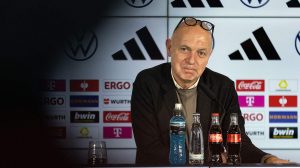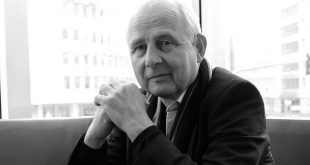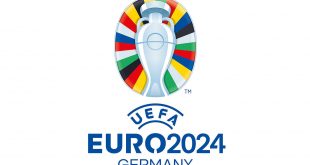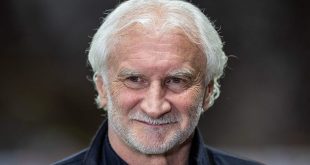 Germany’s DFB President Bernd Neuendorf held a press conference yesterday during which he looked back on 2022 and discussed his nine months so far in the role. He also discussed the founding of an internal and external DFB working group, which will lead the DFB in the future in sporting matters.
Germany’s DFB President Bernd Neuendorf held a press conference yesterday during which he looked back on 2022 and discussed his nine months so far in the role. He also discussed the founding of an internal and external DFB working group, which will lead the DFB in the future in sporting matters.
Speaking on Oliver Bierhoff: I once again said at Doha airport that I would be having a conversation with Hansi Flick and Oliver Bierhoff. They were the first people to talk to for me and Aki Watzke after the tournament and going out. These conversations took place very quickly, we spoke on the phone the following weekend and planned to meet on what is now last Wednesday. Also that weekend, we held conversations with Oliver Bierhoff, during which we mutually agreed to part ways. I would like to reiterate that this separation went how I had imagined it would. We had very good conversations, and we all know what Oliver Bierhoff has delivered for the DFB in the last 18 years. We all owe him a lot of gratitude for the premises we are sitting in today, as that was his idea and it largely comes down to him. He has had a lot of success in football and its development and will always be someone who is a contact for me.
Speaking on Hansi Flick: It had been said that I had asked him to have a conversation, arrange some sort of crisis meeting or that I wouldn’t guarantee him a job – that had been made up somewhat. When I say that we’re going to sit down together, to discuss the last few weeks, how we got knocked out of the tournament and that we need to analyse it, doesn’t mean I’m putting someone in the firing. I say nothing different from what I always did before the tournament: that I have faith in Hansi Flick and his coaching staff, that he is an excellent coach that deserves to manage this team and, from conversations around here, is someone who is very, very important for this team. It’s become very obvious from our discussions that he sees himself as someone with a high level of responsibility, and in every circumstance wants to be successful at our home Euros in 2024. In this sense, the impression is clearly that Hansi Flick is the right man for this job, that’s what I want to underline. We discussed the tournament in confidence from all angles. Hansi will be continuing with his staff and they will draw the right conclusions. In general, everyone can be questioned about the World Cup exit – executives, sporting staff, and the players.
Speaking on the internal procedure: We held conversations as are necessary for a sports association. At the DFB, it’s not just one person responsible for everything, in fact, you need majorities. These majorities are formed in committees. Therefore there weren’t just conversations with Oliver Bierhoff and Hansi Flick, but also meetings with the DFB leadership group, the management board, and the supervisory board of DFB GmbH & Co. KG. Those are important contacts for me because you do well to take these people with you and get their support and encouragement. There were also lots of different conversations with people that are very experienced in football, and though perhaps not currently active at the DFB, do have a great deal of footballing expertise.
Speaking on a new, internal DFB working group: Lots of different things emerged from these conversations: First, while there is a need to be timely, we need to keep cool heads, not rush, and ensure that we make the right decisions. Initial discussions have taken place in this area and we will be starting a working group internally within the DFB, with Alexander Wehrle, chairman of the executive board at DFB GmbH & Co. KG, DFB General Secretary Heike Ulrich, DFB treasurer Stephen Grunwald, Dr. Holger Blask, spokesman for the DFB GmbH & Co. KG executive board, Philipp Lahm as tournament director of Euro 2024 and DFB Vice President and representative Celia Sasic. We will be looking at everything Oliver Bierhoff had responsibility for. He had a big portfolio, as he wasn’t just responsible for the national teams, but also the academy. He was also responsible for the leadership of the entire division, including some medium-term financial and personnel planning. We will be discussing in the working group whether these structures are fine as they are, or if we need to set them up differently going if we want to be successful in this area – not only in a sporting but also in a financial sense. We need to be self-critical here, and decide whether what was concluded last year is tenable under the management of just one person.
Speaking on a new, external advisory group: There will also be a second group; I’m calling it an advisory group. It will be looking at the DFB’s current issues and future in sporting matters – we are looking in the direction of EURO 2024 and further on after. What will be needed from Oliver Bierhoff’s successor in terms of youth and talent development? Those are themes we really want to address with the right expertise. I’ve held many conversations about this and I am very grateful that we have assembled a group whose competency and expertise are beyond any doubt. In this group are Karl-Heinz Rummenigge, Rudi Völler, Oliver Kahn, Matthias Sammer and Oliver Mintzlaff. This is a group that knows men’s football and the national team extremely well. I believe that this will inject fresh impulse. The group will be looking solely after the sporting side of things, and of course looking at the profile, tasks, and qualities of the person that will succeed Oliver Bierhoff will have.
Speaking on the time scale: We want to hold our first meeting before Christmas and build a roadmap looking at the issues. At the start of next year will start working intensively. We now need this solidarity and have to put our powers together looking in the direction of Euro 2024, because it must – and this is something everybody wants – be a success. It’s all about how we get ourselves back on track and start to build a successful team. At the end of the day, it’s down to the DFB’s advisory bodies to decide. I am a go-between for the advisory groups.
Speaking on fan support for the national team: You can see with certain teams at the FIFA World Cup that there is massive support and serious excitement. The enthusiasm for our national team remains unbroken, otherwise, there wouldn’t be as much disappointment as there is about our early elimination. As for how we can rekindle this flame heading towards the Euros, that’s a topic that we will be looking at with our advisory groups.
Speaking on lessons from the FIFA World Cup’s “political” topics: I’ve been thinking a lot about the topic of the ‘One Love Armband’. You ask yourself whether the right decision was taken to not go through with the armband. I always come to the same conclusion: I believe, and you have to make this clear, that we had the sporting mandate to go out and be successful at the tournament. We said we didn’t want to put any success in jeopardy. The situation was in a place where we couldn’t rule out a player or the whole team being sanctioned. FIFA had already warned England about “unlimited sanctions” on the first matchday, and we had to therefore make a quick decision in this situation. I would have made the same decision afterwards, despite all the criticism that we got for it. I’ve learnt that next time, there should be more clarity from our side before a tournament gets underway. We had always been putting off the topic, despite plenty of inquiries so much that it seeped into the tournament. Had we had a few days’ notice, I would have acted differently, and we would have set up direct contact with FIFA president Gianni Infantino and asked to get some binding statements. That’s where I have gained experience and learnt something. But I want to say that we just didn’t get everything we said before the tournament wrong. FIFA had pledged support for establishing a permanent office for migrant workers in Doha and an efficient compensation system for them. That would have certainly not happened if European football associations didn’t apply pressure on them to do that. We will now be examining closely to see if these things are indeed tangibly implemented.
Speaking on the relationship between the DFB and the DFL: If we went back a year and looked at some of the reporting about the DFB, it would mostly be about raids, house searches, investigations led by the public prosecution, large unrest among the association, and disputes between DFL and DFB leadership. We haven’t read or heard anything about these things in the last ten months, which I already believe is a great success. We need unity in football, which I believe we have shown over the last ten months through both the league and the DFB. This stability is what allows good work to take place.
Speaking on the DFB’s political work: I had also said in my opening address that our relationship with politics had to improve. Due to our poor reputation, we were in no position to make political demands or implement them. But the last ten months have been full of conversations with representatives from the Federal Government, members of the opposition, government ministers, the Bundestag’s sports committee, and also with plenty of stakeholder groups. There were also certain specific themes that we wanted to work on. We managed to get the sport under a protective umbrella run by the government in light of gas and energy prices – clearly a big relief for amateur clubs. That’s because as well as the World Cup, we are also just as concerned about our 25,000 clubs. It’s important to fight politically for them – something we did in tandem with the German Olympic Sports Federation.
Speaking on sporting success this year: We certainly can’t forget the sporting success that we have enjoyed this year. We were all very excited about the women’s Euros, which saw us finish runners-up after a fantastic tournament. Our U17 women’s team become European champions. Everything was implemented perfectly to help the women’s game in Germany this year as a whole: we have gone up a whole level in terms of marketing and television licensing. There’s certainly more money for the women’s game, going directly to clubs for their benefit. The work here can be further streamlined, which is great news. The number of viewers watching the Women’s Bundesliga also demonstrates how development is coming along and that we are absolutely on the right track. We’re also clearly seeing more girls playing for clubs, especially in the age group for six-to-nine-year-olds. We wanted to keep promoting the women’s game, and we’ve been successful in that – something we would like to carry on in the coming years.
 Arunava about Football A look at football & the world through my eyes!
Arunava about Football A look at football & the world through my eyes!



